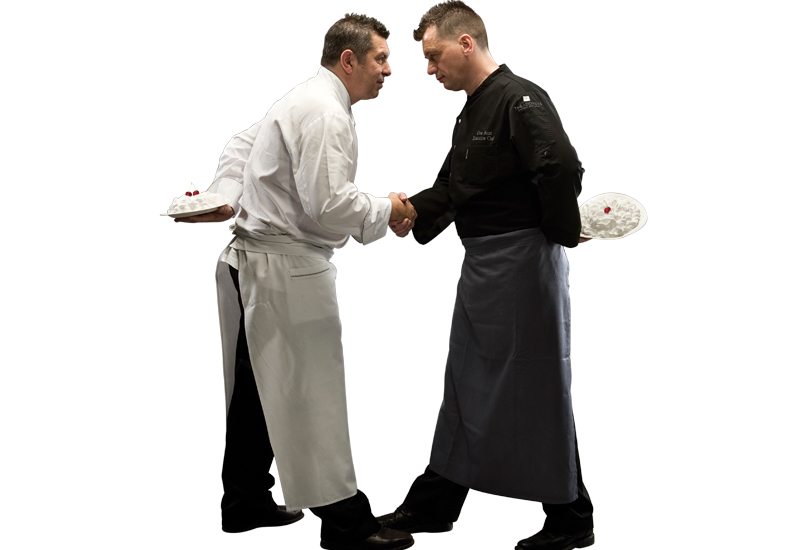Southern Sun’s Haviland says if he could bring one competition to the Middle East, it would be the Bocuse d’Or. “This is held every two years in France and is open to all nations,” he explains. “I think they’re already actually considering bringing it here.
“But I would tweak it so it’s not so traditional and allow the competitors to introduce more creative elements,” he suggests. “There are usually quite strict presentation guidelines regarding what you have to prepare, and I would mix that up to give them a bit more freedom.
“We’re seeing the Middle East emerge as a real competitor on the world stage right now because we’re so multicultural, so to introduce a competition like that would be great,” he adds.
“We’re finding that now the regional market is starting to mature a bit; it got off to a very speedy start, but now things are slowing down, people are able to really focus on the great concepts and the key trends, rather than pandering to fads.”
Rising to the challenge
Whatever this year holds for the F&B industry, it seems that the competitive element of cooking will always be appreciated: indeed, the age-old test of ‘chef versus chef’ has helped the Middle East attain international recognition as a culinary hub, as this year’s Salon Culinaire proved.
The challenge now is for the region’s chefs to build on this strong position and continue to draw the Middle East to the forefront of global gastronomic events.

Advertisement
Mövenpick Hotel Bur Dubai executive chef Marcus Gregs, a live cooking kitchen judge at this year’s Salon Culinaire, tells us about the highs and lows of the prestigious competitive event.
What was your role at Gulfood 2009’s Salon Culinaire?
I was judging the live cooking competitions. We had so much interest this year that we had 14 kitchens going at the same time. As the kitchen judge, I had to make sure the competitors were doing things properly and didn’t bring everything in pre-cut and cooked. The idea is for us to see skills; if they bring it all in, it could’ve been their boss who actually made it.
Why are competitions like this important to the industry?
Competitions are important for motivation, for training and to show people what we can do. Now we’re WACS approved so it’s actually an international competition; if you win a medal here, it’s recognised around the world, which makes our Salon Culinaire one of the most important around globally.
Not the most important yet, but we’ve had 1300 entrants which means we’re on our way. It was the biggest competition area ever this year.
What challenges did participants encounter during the competitions?
Not having enough space in the back for prep is a challenge. At exhibitions you pay per square foot - plus sponsors want to get their brand promoted, so what happens is out the front is all the sponsor space then we have small areas out the back.
That means there’s a lot of pushing and shoving! Of course, getting electricity, gas and water is also tough. You have to set up reliable supplies for all of these and make sure they won’t trip out. Getting the judges together is also tough, because they come from all over the world. It’s a lot of work to get it all organised.









 Search our database of more than 2,700 industry companies
Search our database of more than 2,700 industry companies









